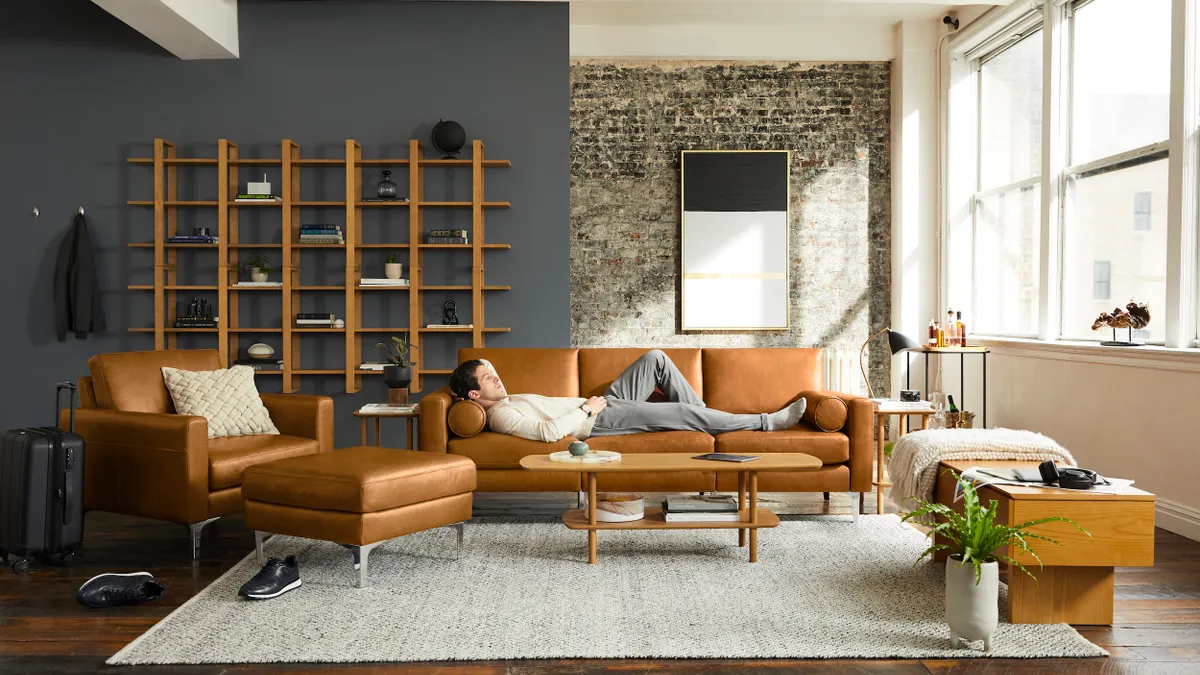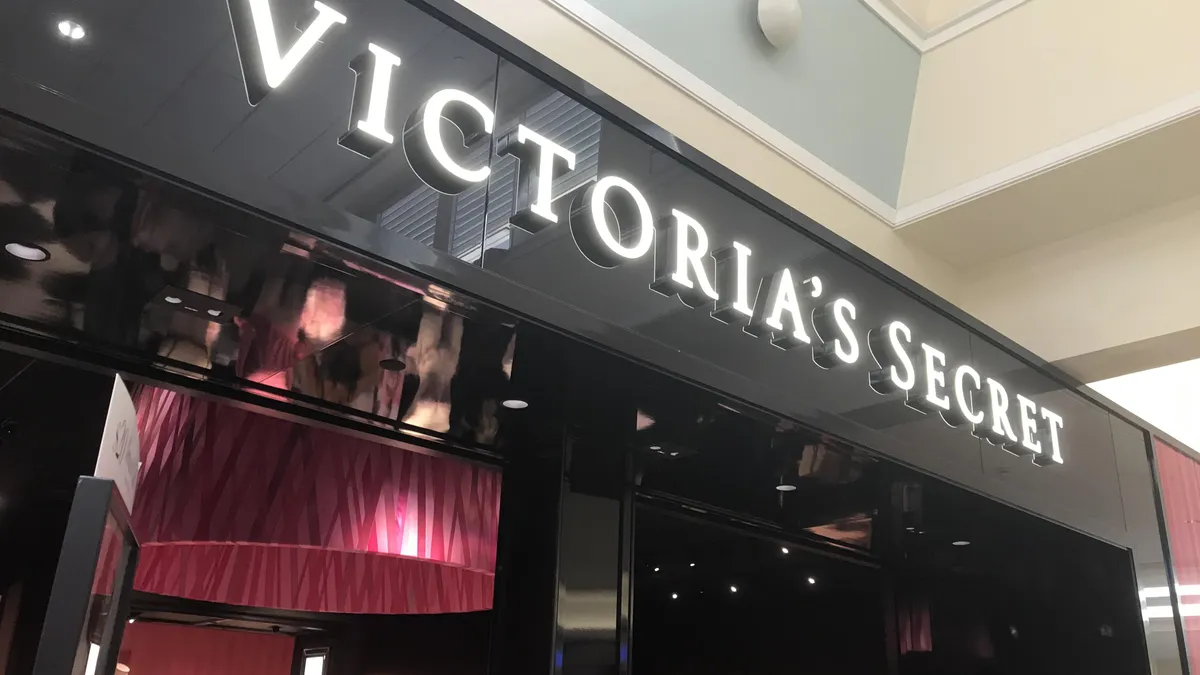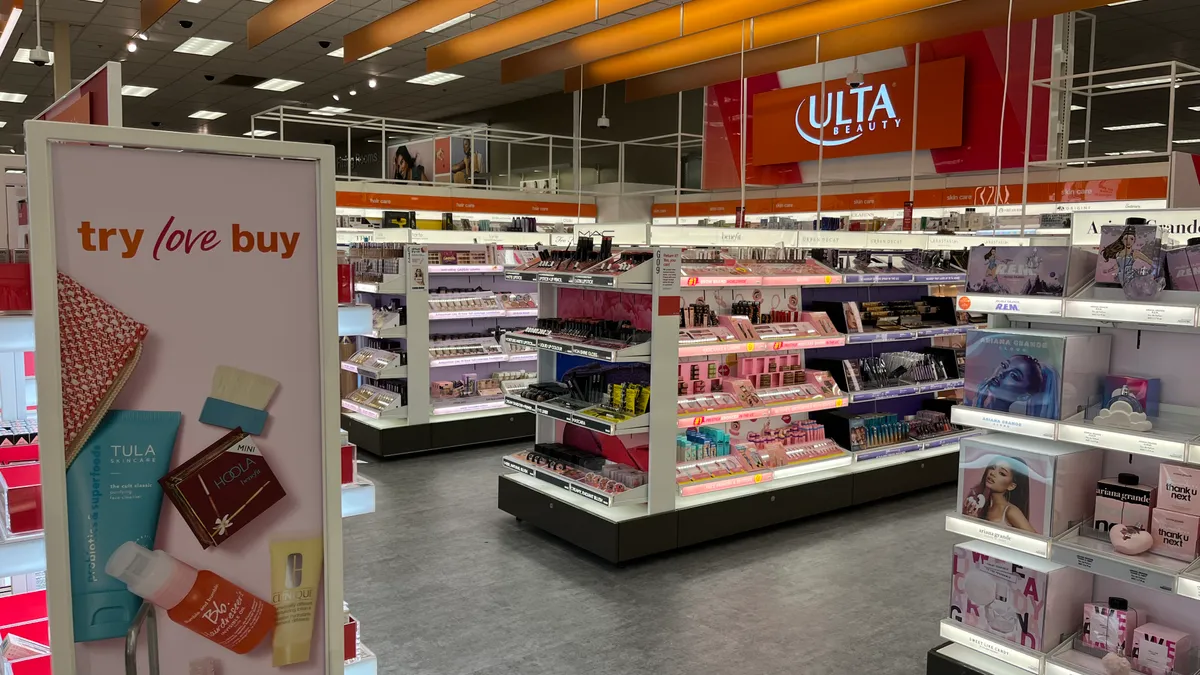Havenly Brands is continuing to build out its roster of home brands. The company on Wednesday announced it acquired DTC furniture brand Burrow for an undisclosed sum, marking the company’s fifth acquisition in the past two years.
Burrow, which launched in 2017, became popular for its modular, flat-pack sofas and chairs that could be installed quickly without tools.
“Burrow's innovative approach to design, in-home furniture delivery and functionality helped reinvent the way people furnish their homes, making it a natural fit for the Havenly family," Lee Mayer, CEO of Havenly Brands, said in a statement. "Burrow fills a unique gap in the market and within our portfolio.”
Mayer said that a “majority” of the Burrow team will be integrated into Havenly, with Burrow leadership staying on for a transition period “to see where they fit.” While it’s not clear yet what role Burrow’s founders will have in the future, in the near term Mayer said Kabeer Chopra, Burrow’s co-founder and chief technology officer, will be focused on ensuring the Burrow e-commerce platform is integrated into Havenly’s platforms, while Stephen Kuhl, co-founder and CEO, will be focused on ensuring the “product roadmap syncs up and making sure all the marketing works.”
At the same time, the company has also rebranded from Havenly Inc. to Havenly Brands because “we really wanted a name that better reflected the kind of diversified house of brands in the home decor space,” Mayer said in an interview with Retail Dive.
“Havenly Brands is more of a reflection of what we do over and above just the design services, which, of course, is where we started,” Mayer added. “The majority of our revenue continues to come from products that we either design and manufacture, or we sell through this design platform. We felt like it was a reflection of the broader strategy at play.”
Havenly Brands is focused on building out the largest digital-first home decor company. In addition to Burrow, the company has also added The Citizenry, Interior Define, St. Frank and The Inside to its portfolio.
“When we think about companies to bring into our portfolio, we really think about who is best in class in the category, at both serving unique needs for customers that we don't currently have in our portfolio, but also that are sort of best in class at serving what I call like a digital-first, or digitally native customer,” Mayer said.
Still, Mayer remains bullish on retail, particularly with its latest acquisition. Havenly plans to keep all four Burrow stores open, which are located in New York City, Chicago, Los Angeles and Boston.
The majority of Burrow’s revenue comes from seating, Mayer said, adding that for that product category, “it's necessary to have retail, and so we're going to continue to play with that format and see if we can find other locations for Burrow and maybe some of our other brands as well.”

And for the brands that it acquires, Havenly can provide resources that those brands didn’t have access to before, according to Mayer.
“The last couple of years have been challenging for independent brands,” Mayer said. “You sometimes just don't have the resources to invest the way that you want to invest, and in a market in which you're seeing demand a little bit softer, you're seeing marketing costs go higher and funding dry up.
“A lot of brands like Burrow have found themselves in a position where they really have to pick and choose and be really narrow in terms of what they focus on. What's exciting about joining a platform like ours is, we have an established distribution mechanism through which we can sell products.”
Mayer said that the company can sell Burrow products through its other brands, which is a strategy it has already been testing. Earlier this year, The Citizenry opened an outpost within Interior Define’s Denver store.
“It's hard to get great retail space right now,” Mayer said of integrating its brands through brick and mortar. “Our brands very clearly have overlapping consumer segments, and so I'd like to explore that further. We're definitely being very thoughtful and in some cases opportunistic when we think about how our brands sort of interplay together.”
Havenly is executing on its strategy of acquiring more home brands at a time when the category as a whole remains challenged. After experiencing a boost during the onset of the pandemic, the category has seen declines in recent years fueled in part by high interest rates, lower home sales and other economic challenges putting pressure on consumers’ wallets right now.
“What's been really interesting is we've been able to — while this has been happening — really amass the best-in-class assets for the generation of home buyers and home furnishing buyers that are about to be the majority of home furnishings spend,” Mayer said. “There's a normalcy returning to the market, and we're in this position to really capitalize on it because of what we've been building for the last couple of years.”






















